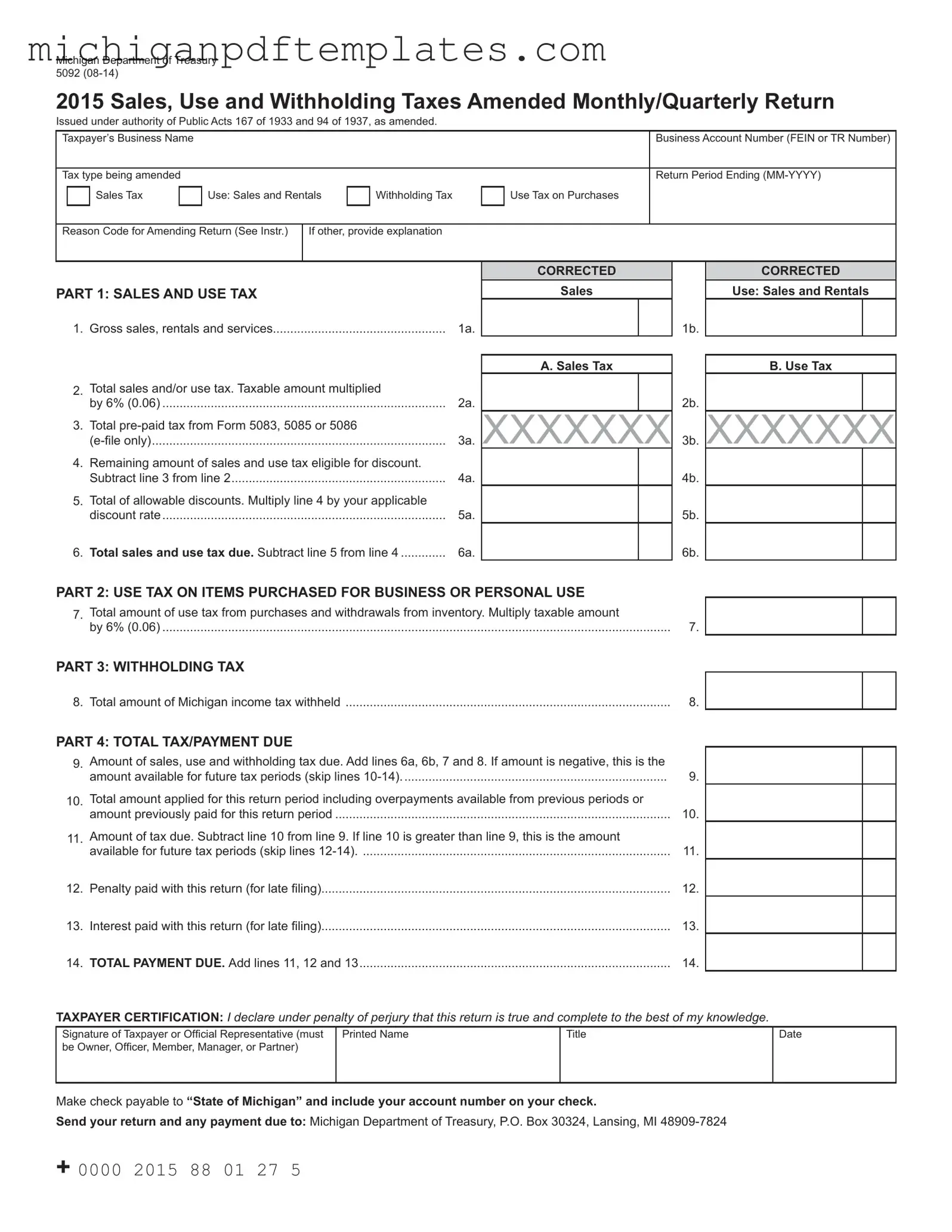Fill in Your Michigan 5092 Form
The Michigan 5092 form is an essential document used for amending Sales, Use, and Withholding Taxes for businesses in Michigan. This form allows taxpayers to correct previous tax returns for specific periods, ensuring accurate reporting and compliance with state tax laws. If you need to amend your tax return, consider filling out the Michigan 5092 form by clicking the button below.
Get Your Form Now

Fill in Your Michigan 5092 Form
Get Your Form Now

Get Your Form Now
or
▼ PDF Form
Finish this form quickly and move on
Fill in and complete Michigan 5092 online quickly.